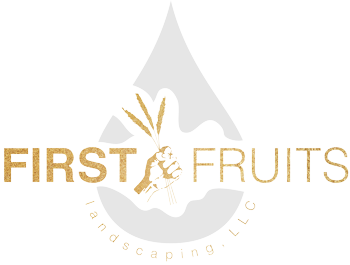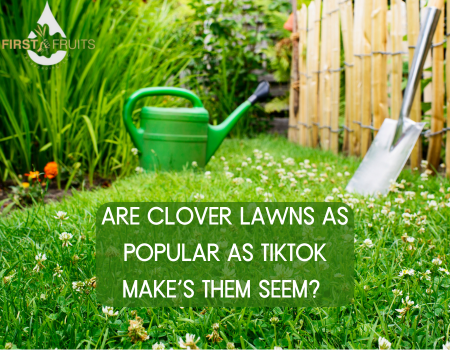With social media becoming a part of every-day life, as you scroll your fee you may notice that clover lawns have gained a significant following across multiple social media platforms such as TikTok, where eco-friendly gardening trends can often go viral. But this viral trend has left many homeowners wondering if clover lawns are truly as popular as TikTok suggests. Clover Lawns do have their fair share of benefits, but as with all things, there are also cons, so, is it worth the switch? While it’s easy to see a viral edited video of a lush backyard set to relaxing music and envision yourself sitting on your deck with a glass of wine and a good book with your toes in the “grass”, there is more to clover lawns than what many of these influences are leading you to believe.
The Popularity of Clover Lawns
While clover lawns are indeed gaining popularity among many homeowners there are quite a few things to understand about clover lawns including their upkeep, care, ability to attract pollinators and overall aesthetic of your lawn. The push towards more sustainable and low-maintenance gardening practices has made clover a great alternative to the more traditional grass lawns. On TikTok and other social media platforms such as Instagram, you’ll often find numerous influencers and everyday gardeners showcasing their lush, green, clover lawns, praising their benefits for the environment and ease of care.
Pros of Clover Lawns
Low Maintenance:
- Less Mowing: Clover grows to a shorter height compared to traditional grass, meaning you can reduce the frequency of mowing. This is a major selling point for those looking to spend less time on lawn care.
- Drought Tolerance: Clover is more drought-resistant than many grass varieties, requiring less watering and making it ideal for areas prone to dry spells, while this might not be the case for the PNW, it does help limit the amount of watering needed during summer months and can also help eliminate the need for a full irrigation system.
Environmental Benefits:
- Nitrogen Fixation: Clover naturally enriches the soil by fixing nitrogen, which reduces the need for chemical fertilizers.
- Pollinator Friendly: Clover flowers attract pollinators like bees, which are crucial for a healthy ecosystem and can help your garden flourish. Whether you have flowers, vegetables, or fruits, the presence of bees is an easy way to ensure that your garden looks it’s best all year long.
Pest Management:
- Beneficial Insects: Clover attracts insects that prey on garden pests, reducing the need for chemical pesticides and promoting a healthier garden environment.
Cons of Clover Lawns
Bee Attraction:
- While beneficial for pollinators, the presence of bees can be a concern for those with allergies or worries about children and pets getting stung. While attracting a few bees here and there is definitely a beautiful sight for gardeners, if hives become present, you may find yourself with a bee or hornet infestation.
Invasiveness:
- Clover can spread aggressively, which might not be desirable for those who prefer a more controlled lawn appearance. It can invade garden beds and other landscaped areas if not managed properly.
Seasonal Dormancy:
- In colder climates, pure clover lawns can go dormant during winter, leading to bare patches. Mixing clover with traditional grass can mitigate this issue, maintaining a more consistent lawn appearance year-round.
Foot Traffic Tolerance:
- While clover can handle moderate foot traffic, it is not as durable as traditional turfgrasses. For lawns that see heavy use, combining clover with grass can provide a more resilient surface.
Aesthetic Differences:
- Clover lawns have a different texture and appearance compared to traditional grass lawns. This might not appeal to everyone, especially those who prefer the uniform look of a manicured grass lawn.
While there is no denying that clover lawns are becoming more popular, it’s important to consider the potential downsides as well as the positives before making the switch. Whether you choose a pure clover lawn or a mix of clover and traditional turf, the key is to make sure that the lawn you choose will serve your personal landscaping needs. Are you ready to discuss the landscaping options available to you? Contact our team of professional landscapers today!

